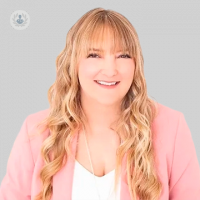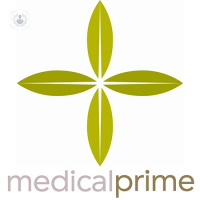Premature ovarian insufficiency (POI)
Dr Ashlesha Dhairyawan - GP (general practitioner)
Created on: 08-29-2023
Updated on: 04-26-2024
Edited by: Conor Dunworth
What is premature ovarian insufficiency?
Premature ovarian insufficiency (POI), premature menopause and premature ovarian failure are all terms to describe the same condition. These all describe the loss of ovarian function before the age of 40. This can occur as a teenager, in the 20s or 30s. Ovaries stop functioning correctly and are unable to produce the hormones oestrogen, progesterone or testosterone.
Approximately one in every 100 women under the age of 40, one in 1,000 women under the age of 30 and one in 10,000 under the age of 20 experience POI.

What are the causes of POI?
Unfortunately, in 90% of cases, there is no underlying cause identified. However, the following are known to be triggers.
Direct causes include:
- Genetic abnormalities. These are more common in women who have a family history of POI or who are diagnosed at a very early age (teens or early 20s) and in women who have never started menstruating. These include the rare conditions called Turner syndrome and Fragile X Syndrome
- Autoimmune disorders such as type 1 diabetes or autoimmune thyroid disease. Adrenal gland failure resulting in Addison’s disease can also cause POI.
- Rare enzyme deficiencies, such as Galactosaemia or 17 alpha-hydroxylase deficiency.
Indirect causes include:
- Cancer treatment -chemotherapy and radiotherapy
- Surgical menopause due to surgical removal of ovaries
- Hysterectomy (removal of womb) without removing ovaries
- Infections such as mumps, tuberculosis, malaria
What are the signs and symptoms of POI?
Women with POI may experience the following symptoms:
- Period abnormalities - irregular or no periods
- Infertility
- Hot flushes, night sweats
- Difficulty sleeping
- Vaginal symptoms - dryness and soreness
- Urinary symptoms and urinary infections
- Low sex drive
- Fatigue
- Irritability and mood changes
- Anxiety, panic attacks
- Joint and muscle pain
- Difficulty concentrating and memory issues
- Skin and hair changes
- Weight gain – especially around the abdomen and waist.
Can you get pregnant with POI?
The ovaries do not function correctly in POI, but occasionally the ovaries start working sporadically. Around 5-10% of women who have POI without a known reason will get pregnant.
Referral to the fertility clinic is recommended for women with POI where IVF with egg donation can be considered.
How can POI be treated?
If POI is left untreated, there can be serious long-term health implications. This is largely due to a prolonged lack of oestrogen.
There is an association with reduced bone mineral density and subsequent increased risk of osteoporosis and fracture. Reduced life expectancy largely due to a rise in the risk of heart disease can occur. There is also a link with reduced cognition as well as a significant negative impact on psychological well-being and quality of life.
To reduce these risks, the British Menopause Society (BMS) recommends that all women with POI should be offered hormone replacement either with combined oral contraceptives or with hormone replacement therapy (HRT) at least until the natural age of the menopause, that being 51 years.
The reported risks of HRT, such as increased incidence of breast cancer, only apply to women who take HRT above the age of 51.
There are many different types of HRT, and it is important that these are tailored to each woman individually.
HRT is not a contraceptive and even in women with POI, if this is needed you will need to speak to your doctor about additional contraception.
A healthy lifestyle plays a key factor in hormone health. Stopping smoking, reducing alcohol intake and having a balanced diet are important.








